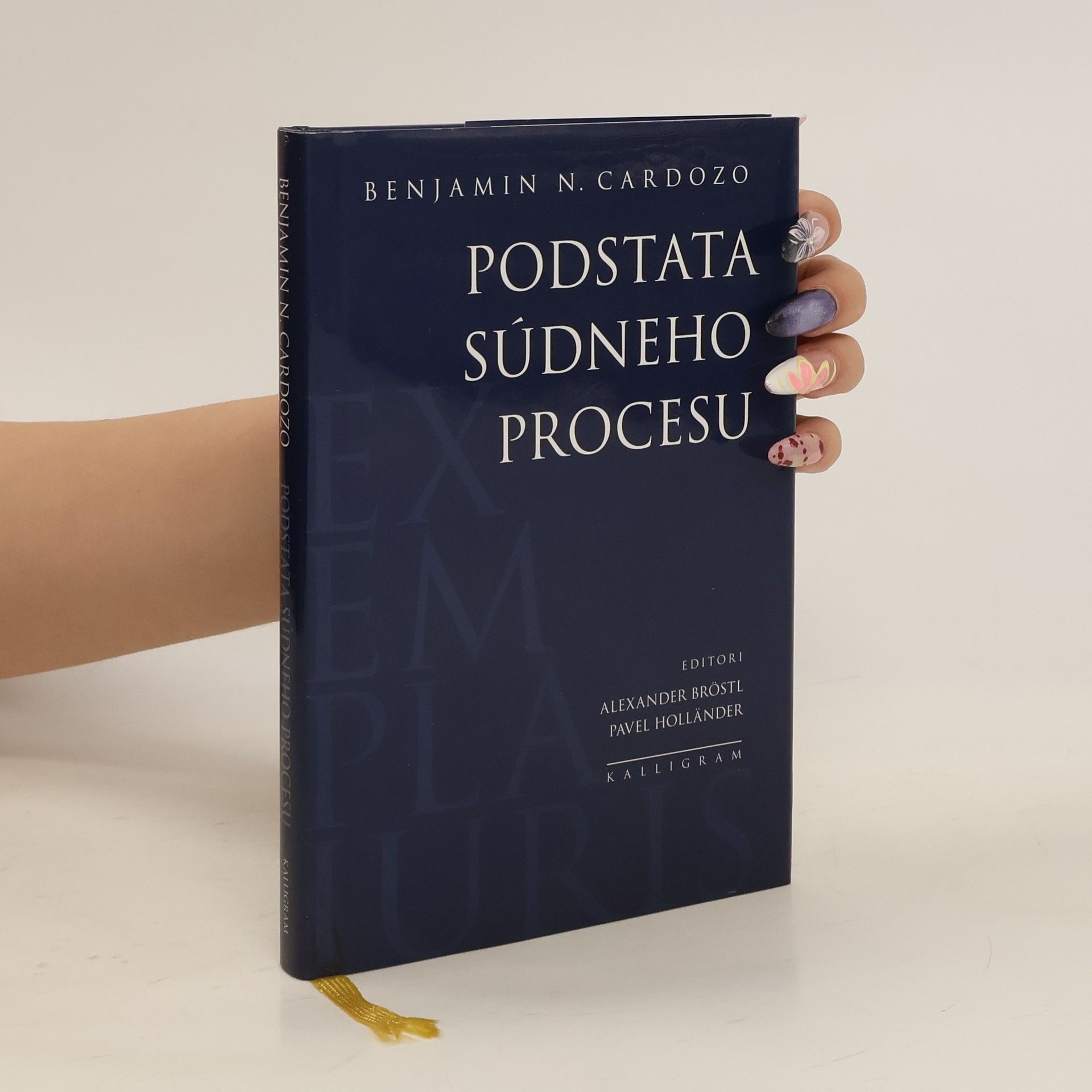Podstata súdneho procesu
- 134pages
- 5 heures de lecture
Podstata súdneho procesu - Benjamin N. Cardozo. Benjamin Nathaniel Cardozo (1870 – 1938) po skončení právnického štúdia na Columbijskej univerzite (1891) začal pôsobiť ako advokát v New Yorku a pomerne zavčasu aj ako sudca. Predstavy o úlohe sudcu a o pochopení toho, čím sa sudca riadi pri rozhodovaní prípadov, zhrnul v mimoriadne úspešnej sérii prednášok uverejnených v roku 1921 pod názvom Podstata súdneho procesu (The Nature of Judicial Process). Táto knižka sa stala jeho najúspešnejším titulom. Cardozo navrhol metódy, ktorých vzájomnou kombináciou by sa mala zaručiť vyváženosť medzi požiadavkou stability a pokroku. Sú to: metóda filozofie alebo logiky, historická metóda, metóda tradície a sociologická metóda.
